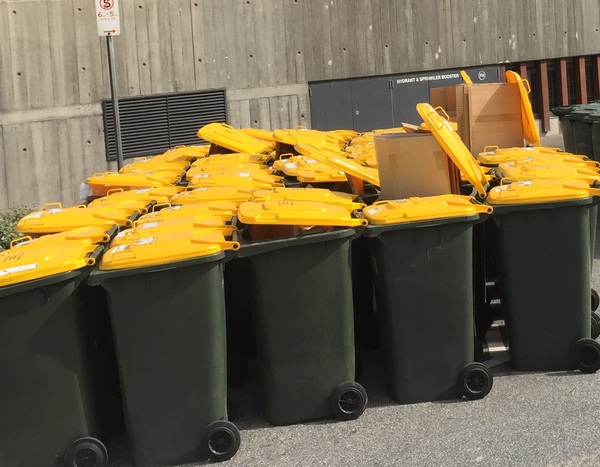
How to Avoid Bin Disasters
As Greater Melbourne and Sydney’s suburbs continue to grow, so do the number of bins placed on the footpath for collection. But too many developments consider waste management too late in the design process. “Band-aid fixes” often cost time, money and valuable ground floor space.
Excessive numbers of bins placed out for bin collection also reduces street amenity – not to mention the view from the newly activated frontage. Businesses don’t want patrons sitting near bins! Councils don’t want streets lined with bins! So what’s the answer?
Design smarter. Engage an expert.
Bin numbers can be reduced through techniques such as improved collection options, expedited collection rates, introduction of waste compaction equipment and the creation of an on-site loading bay.
We work with developers during the early stages of design to ensure best practice for waste management is incorporated.
Here are five starting points towards best practice waste management:
1. Can negotiations with council be undertaken for the use of large bins in place of many smaller ones?
2. Would council be willing to collect multiple times per week?
3. Would the use of compaction equipment (chute based or stand alone) benefit the development?
4. If a compactor is implemented, can it be collected safely?
5. Is a bin store opening onto the street the best option for collection?
SALT has extensive experience selecting the best equipment for each building type and size. We implement best practice waste engineering solutions to improve resident and tenant experience, reduce operational costs and streamline the use of ground floor space in both new and existing developments.
What’s more, best practice waste planning achieves a balance for residents, building managers and council collection contractors alike.
At SALT we provide a range of waste management services including construction waste management, environmental management, and more.
Need the best in waste management for your development? Contact us here or call +61 3 9633 1900 for a tailored waste engineering strategy.
